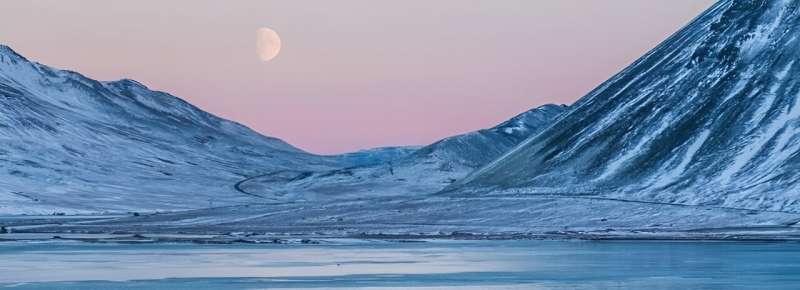
[ad_1]

Credit: Daiwei Lu/Unsplash
Houthi rebels are attacking ships in the Red Sea. A return trip via South Africa is expensive, while the Arctic route only takes a week. Once past the no-go zone, this route may be a more realistic option. Mind the nuclear submarines, though…
After researching the Arctic from many different perspectives using his knowledge of law, geography, biology, international relations, national security studies, economics, energy and governance—the Ph.D. Candidate Alexandros Sarris is a person who sheds light on the current situation affecting the Arctic. We sat down with the stork.
Cold War 2.0 in Arctic waters
SARAS: When I started researching the Arctic in 2010, everyone was talking about it. Climate change. The North Pole was melting faster than expected and there was an urgent need to protect the environment. But in 2022, the situation changed virtually overnight due to Russia’s invasion of Ukraine. It blocked environmental projects and cooperation among Arctic states.
now that Armed conflict As the dialogue has entered, Arctic states consider their priorities more carefully. But according to one theory International relationsa Cold War 2.0 is underway that is also affecting the Arctic.
Nuclear submarines.
It is not common knowledge that the Arctic has been heavily militarized with many activities taking place in Arctic waters. Russia has stationed its nuclear submarines in Murmansk, a small Arctic bay with only submarines and king crabs. Due to their wide range, Russian submarines can target any city in Europe, America or Ukraine. The United States, the second largest nuclear power and an Arctic state, has its nuclear missiles in Alaska, which lies partly in the Arctic.
Ghost submarines, which take their name from their ability to remain undetected and unseen, travel through the middle of the Arctic. These large submarines, ranging between 100m and 120m in length, move along the ocean floor. These submarines are sometimes involved in collisions, not that such have ever been reported. Recently an American Submarine “Hit something.” Anyone listening carefully will know that this incident is likely to be a collision between two submarines.
Houthi Attacks: Shift to the North Pole
And then there is the Israel-Gaza war. The conflict has been a game changer for the future of the Arctic as it has changed sea lanes overnight.
Houthi rebels are attacking ships passing through the Red Sea. Rerouting via South Africa takes two more weeks, meaning a four-week trip now takes five to six weeks. These massive delays are costly in themselves, but high gas and oil prices are making it so. the way Even more expensive. Carriers say that if we continue to travel through South Africa, existing supply chains will be disrupted — and that is not a sustainable option.
Alternative route
And that’s where the Arctic Way comes in. Take a look at the map — there’s no choice but to travel via the North Pole.
The Arctic is ice-free between March and October. It only takes a week to sail the Arctic route from Shanghai to Rotterdam, and it’s not at all for pirates because it’s too cold for them.
And so this route is fast becoming a more realistic option. Not in the near future though because no one can argue that a war zone counts as a viable route. For example, military activity would disrupt normal shipping communications. Other essential infrastructure like ports are also lacking. And don’t forget that there are many unregulated waters—Russia and the US won’t allow ships to pass through those waters without paying tolls.
An environmental disaster
However, at some point, when there is at least some level of peace between Russia and Ukraine, this route will become more maritime and financially sustainable. Not that I think it’s a good idea – quite the opposite, actually. From an environmental point of view, this can be disastrous. Oil spills will be worse in cold water because it is harder to clean. And let’s not forget the impact on the region’s biodiversity and local people, who are already struggling to survive due to the loss of viable fisheries. But it’s a realistic scenario that may soon figure in the public debate.
Provided by
University of Leiden
Reference: Wars in Ukraine and Gaza could soon affect our view of North Pole, researcher warns (2024, February 16) February 17, 2024 https://phys.org/news/2024-02-wars- Retrieved from ukraine-gaza-affect-approach.html
This document is subject to copyright. No part may be reproduced without written permission, except for any fair dealing for the purpose of private study or research. The content is provided for informational purposes only.
[ad_2]


